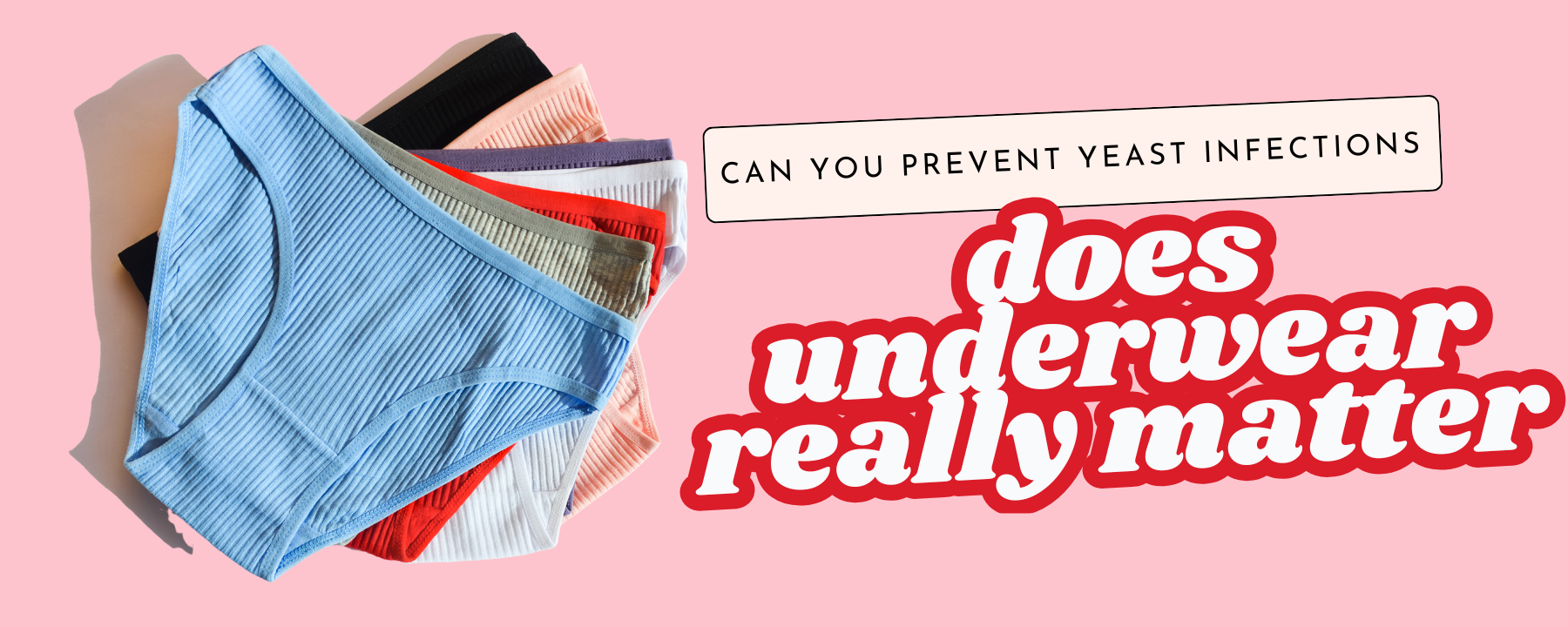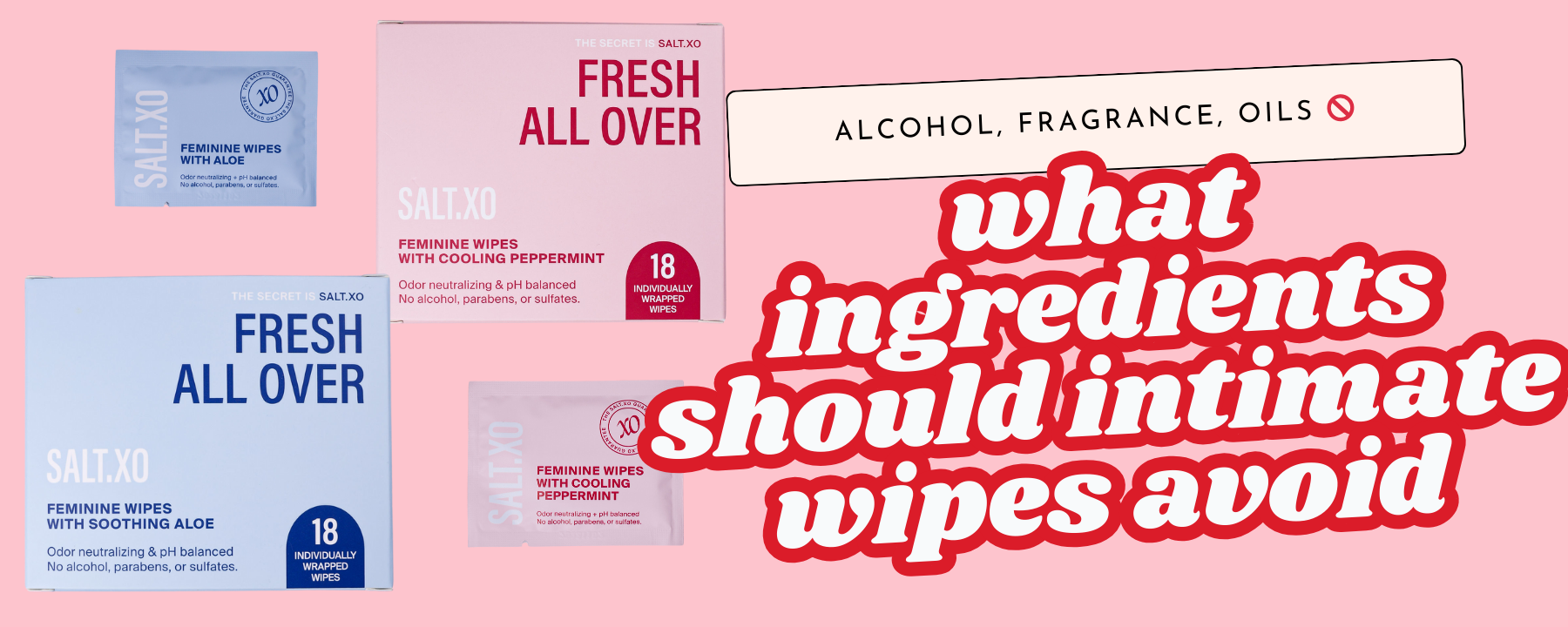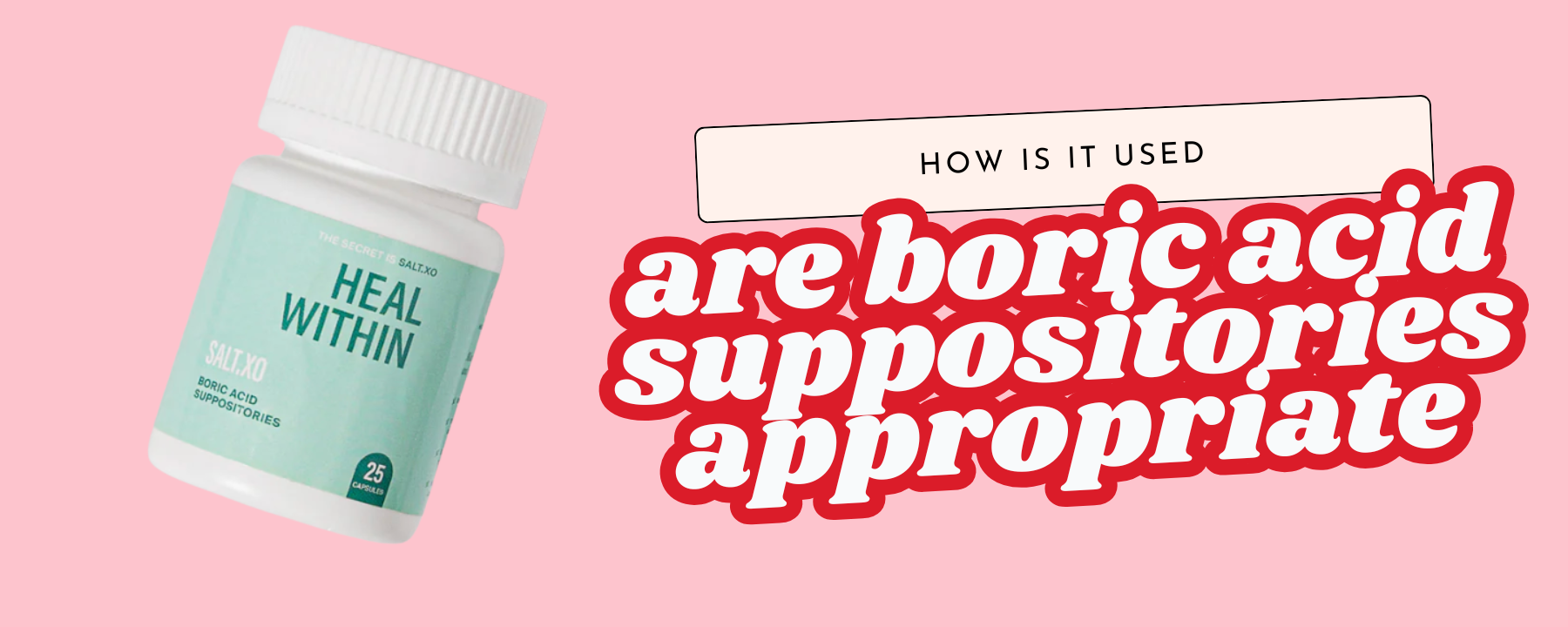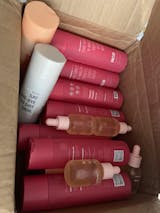Are Feminine Deodorant Sprays Safe—or Do They Irritate the Vulva?

Most feminine deodorant sprays contain fragrance and alcohol that can irritate sensitive vulvar skin and disrupt your balance. The vagina is self-cleaning—you only need gentle external care. If odor is new, strong, or persistent, see a clinician; sprays and douching can make things worse.
TL;DR
-
Sprays often irritate; they don’t fix the cause of odor.
-
Keep care external-only, fragrance-light (or fragrance-free), and breathable.
-
New/persistent odor, unusual discharge, itching, pain, or bleeding = see a clinician.
Vulva vs. Vagina—What Actually Needs Washing
-
Vulva = external skin (labia, clitoral hood, mons, perineum). Clean gently with warm water; if you prefer, use a mild, fragrance-free, pH-considerate cleanser externally only.
-
Vagina = internal canal with its own cleaning system (discharge + healthy bacteria). Do not wash or spray inside. No douching.
Why Feminine Sprays Can Backfire
-
Fragrance/parfum is a common trigger for contact dermatitis—especially on thin, delicate vulvar skin.
-
Alcohol/propellants can dry and irritate, creating micro-irritations that actually increase odor complaints.
-
Powders/sprays may trap moisture and heat in folds, encouraging imbalance.
-
Masking odor delays care; if something’s off, get evaluated.
Ingredient Red Flags (Quick Checklist)
Avoid using products on or near the vulva if they include:
-
Fragrance / parfum (including heavy essential-oil perfumes)
-
Alcohol denat. or high-alcohol bases
-
Talc or heavy powders
-
Strong antibacterials that can disrupt the microbiome
-
Dyes and harsh preservatives
Patch test any new body product away from the genital area first. Never apply to broken, freshly shaved, or already-irritated skin.
What Actually Helps With Odor (Science-Backed Habits)
-
External-only cleanse: warm water; if desired, a mild, fragrance-free, pH-considerate wash.
-
Change out of sweaty/wet clothing quickly (workouts, swimsuits).
-
Choose breathable underwear (cotton or cotton gusset).
-
For long days and travel, use individually wrapped, alcohol-free wipes externally; then pat dry.
-
Skip tight, damp layers; consider sleeping without underwear to reduce heat and moisture.
-
If odor is new, strong, or persistent, or comes with discharge/itching/pain—see a clinician to rule out BV, yeast, or STIs.
When to Skip Even “Gentle” Scents
If you’re pregnant, have eczema/dermatitis, are navigating perimenopause dryness, just shaved/waxed, or have recent irritation, stick to fragrance-free routines until skin is calm and comfortable.
Safer Freshness Routine (Step-by-Step)
-
Rinse the external vulva with warm water; if desired, use a mild, fragrance-free cleanser (external only).
-
Rinse thoroughly and pat dry—don’t rub.
-
Put on breathable underwear; avoid stacking tight, damp layers.
-
For travel/gym days: use an alcohol-free wipe externally, then change into dry clothing.
-
If symptoms persist, don’t mask—get evaluated.
When to See a Clinician (Not a Spray)
-
Strong “fishy” odor with thin gray/white discharge (possible BV).
-
Thick white discharge with itch/burn (possible yeast).
-
Green/yellow or frothy discharge, pain, bleeding, fever, or symptoms that recur/persist.
FAQs
Are feminine deodorant sprays safe for daily use?
Generally not recommended for vulvar skin. Fragrance and alcohol can irritate and worsen symptoms.
Can sprays cause BV or yeast infections?
They can irritate or disrupt balance, which may increase odor complaints and discomfort. If odor changes, get evaluated rather than masking.
What’s a safe way to feel fresh after workouts?
Rinse the external area, switch to dry, breathable clothing, and use alcohol-free wipes externally if needed.
Is fragrance-free always better for the vulva?
For sensitive genital skin, yes—especially if you’re prone to irritation.
Should I use powder to control moisture?
Avoid powders on/near the vulva. Manage moisture with breathable fabrics, quick changes, and pat-dry habits.
Medical disclaimer: This article is educational and not a substitute for professional medical advice. If you have symptoms or concerns, consult a qualified clinician.





Comments